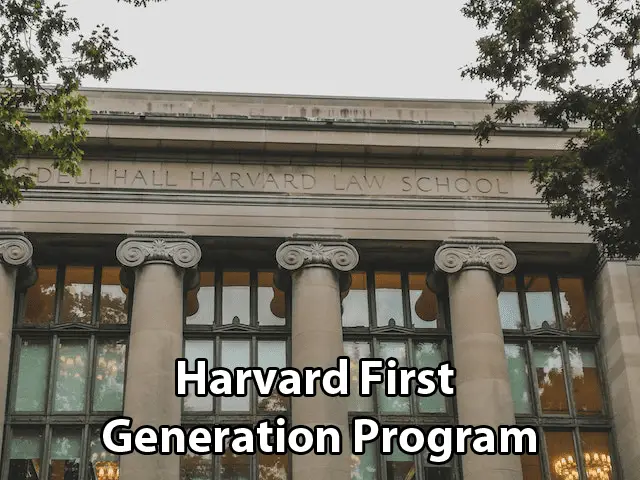
Embarking on the journey to higher education can be a daunting experience for anyone, but it can feel especially overwhelming for first-generation college students—those who are the first in their families to attend college. One of the paramount challenges they face is financing their education. Scholarships can play a crucial role in alleviating these financial burdens. This article will explore how first-generation college students can effectively navigate scholarship opportunities to help turn their academic dreams into reality.
Understanding Your Unique Position
First-generation students often possess qualities and experiences that make them strong candidates for scholarships. They frequently demonstrate resilience, determination, and a keen awareness of the value of education. However, they might also lack guidance in navigating the complex landscape of financial aid.
What Makes First-Generation Students Unique?
First-generation students often bring diverse perspectives and a strong work ethic to their educational pursuits. Many have overcome significant obstacles to reach college, such as economic hardship or limited access to academic resources. Scholarship committees recognize these traits and value the unique contributions these students can make to academic communities.
Identifying Barriers
While first-generation students possess many strengths, they also face unique challenges:
- Lack of Information: Without parental experience in higher education, accessing information on scholarships can be challenging.
- Limited Networks: These students may have fewer connections who can offer advice or recommendations.
- Financial Constraints: Many first-generation students come from low-income backgrounds and need substantial financial aid.
Understanding these barriers is the first step towards overcoming them.
Researching Scholarship Opportunities
The scholarship search requires time and effort but is well worth it when considering potential financial benefits.
Starting Points
Here’s where first-generation college students can begin their search:
- High School Counselors: They often have valuable information about local scholarships.
- College Financial Aid Offices: Most colleges have resources specifically aimed at helping first-generation and low-income students.
- Online Databases: Websites like Fastweb, Scholarships.com, and the College Board’s Scholarship Search provide extensive lists of scholarships.
Tailoring Your Search
To maximize your chances, tailor your search based on your individual background:
- First-Generation Specific Scholarships: Some scholarships are specifically designed for first-generation college students.
- Field of Study Awards: Many organizations offer scholarships based on your intended major or field of interest.
- Demographic-Based Scholarships: Look for opportunities available to underrepresented groups that you may belong to (e.g., ethnic minorities, women in STEM).
Keeping Track
Create an organized system for tracking scholarship applications:
- Spreadsheet or List: Record deadlines, requirements, contact information, and application status.
- Calendar Reminders: Set reminders for important deadlines well in advance.
Staying organized ensures you don’t miss out on important opportunities due to oversight or missed deadlines.
Crafting a Compelling Application
Once you’ve identified potential scholarships, creating standout applications is crucial.
Personal Statement
Many scholarships require a personal statement or essay:
- Tell Your Story: Highlight your experiences as a first-generation student and how they have shaped you.
- Be Genuine: Authenticity resonates more than generic statements; discuss specific challenges you’ve faced and how you’ve overcome them.
- Showcase Accomplishments: Include academic achievements, extracurricular activities, community service, or work experience that demonstrate your dedication and skills.
Letters of Recommendation
Strong letters of recommendation can bolster your application:
- Choose Wisely: Ask teachers, counselors, employers, or community leaders who know you well and can speak to your abilities and character.
- Provide Context: Share details about the scholarship with your recommenders so they can tailor their letters appropriately.
- Give Ample Time: Request recommendations well before deadlines to give writers enough time to craft thoughtful letters.
Detailed Applications
Pay close attention to each scholarship’s requirements:
- Follow Instructions: Ensure all documents are complete and submitted correctly.
- Proofread Everything: Spelling errors or incomplete forms reflect poorly on applicants; ask someone else to review your application if possible.
Leveraging Available Resources
Numerous resources are available specifically for supporting first-generation students through this process:
Educational Programs & Workshops
Many schools offer programs aimed at helping first-generation students navigate college admissions and financial aid processes:
- TRIO Programs: Federally funded programs like Upward Bound assist disadvantaged high schoolers prepare for college.
- College Prep Workshops: Organizations such as College Horizons provide workshops focused on essay writing and other aspects related directly to securing funds via scholarships.
Mentorship Opportunities
Connecting with mentors who have gone through similar experiences offers invaluable guidance and encouragement. Mentors can provide insights into the scholarship process and help you set realistic goals.
Embracing Available Technology Tools
Technology provides several tools making this process easier and more manageable:
- Apps/Websites: Platforms like Scholly, Cappex, and RaiseMe monitor new funding sources and update regularly, tailored specifically to meet user needs.
- Virtual Networking: Platforms connecting aspiring scholars with experienced professionals and alumni networks can share insights and best practices, optimizing success rates.
Conclusion
Navigating scholarship opportunities can be challenging yet immensely rewarding. By understanding your unique position, leveraging available resources, crafting compelling applications, and staying organized, you can significantly increase your chances of securing the financial aid needed to achieve your academic and career goals. Your journey as a first-generation college student is an inspiring story of perseverance and potential—embrace it, and let it guide you toward a brighter future.

















